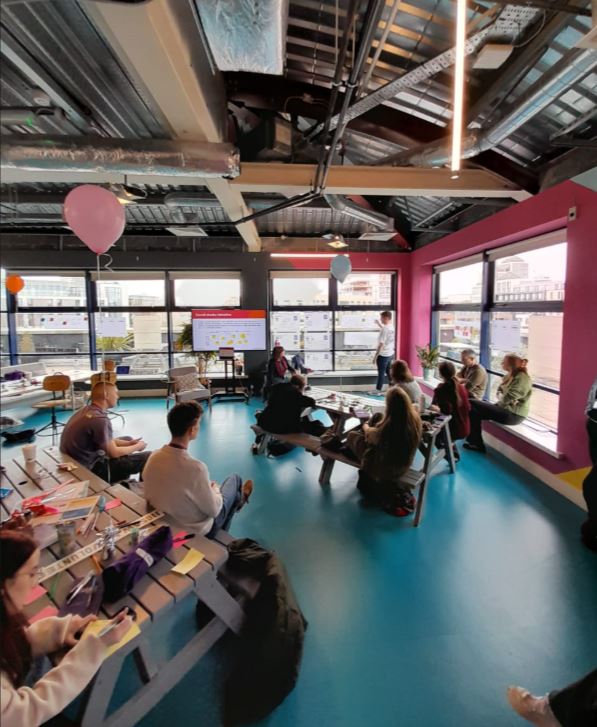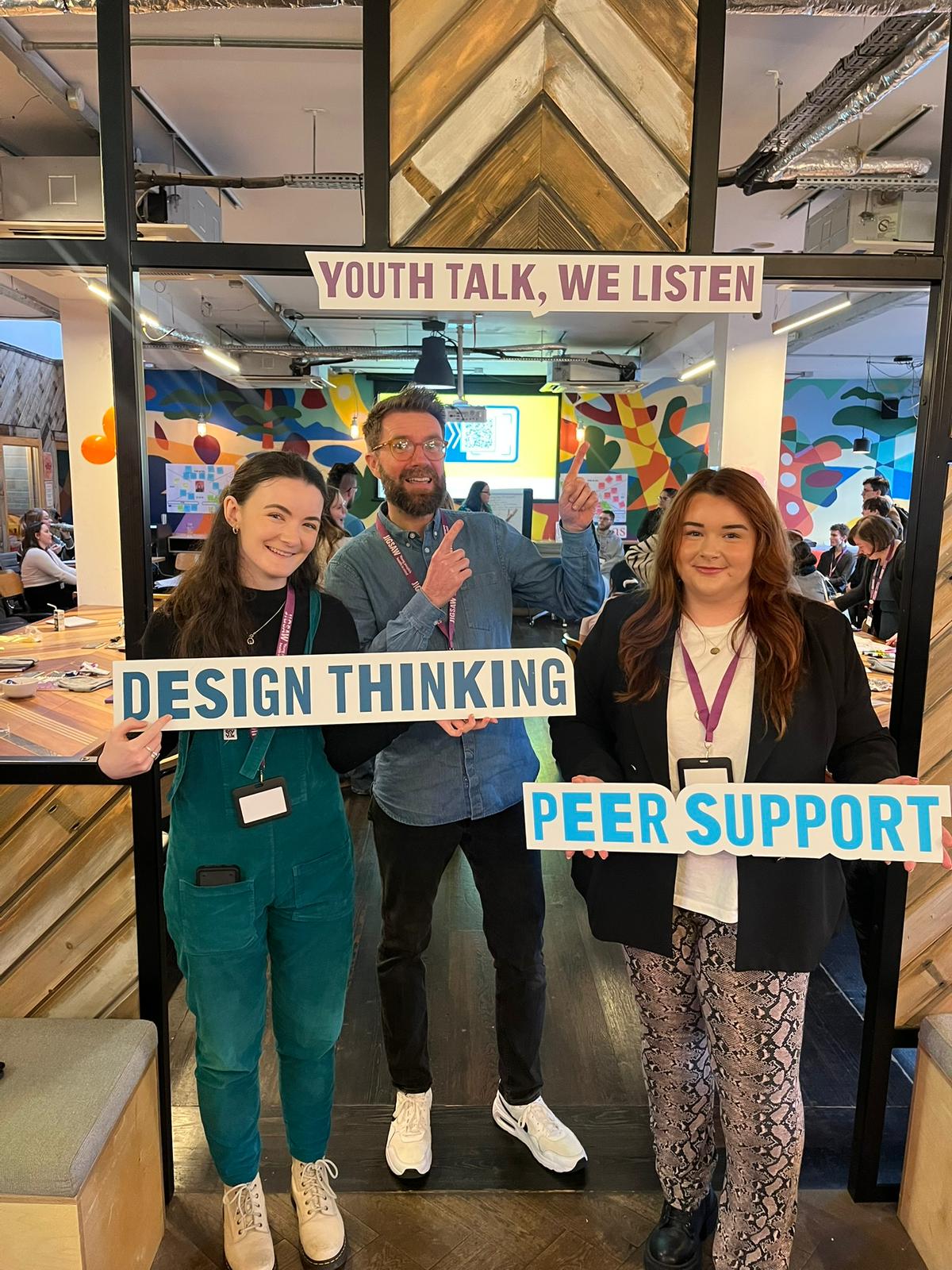It sounds like such an obvious approach but sadly the voice of young people has been missing from the conversation.
Policies around access to social media, and less specifically ‘phones’, have been directed in Ireland by schools, big tech, and politicians.
Young people are at the centre of all this and deserve a voice in how policies around tech will impact their lives.
To start this conversation, Jigsaw last weekend brought together young people from around Ireland to explore these issues and prepare some recommendations for policymakers on social media and online safety.
David Kavanagh, Jigsaw’s Youth Voice & Engagement Manager, explains:
“On Saturday, we hosted the second session in our Youth Talk, We Listen Design Series 2025—a space where young people and decision-makers come together to shape the future of youth mental health.
“This session focused on social media and mental health, exploring the role services like Jigsaw should play, and what future policy and practice should look like. Youth Advocates from across the country took part, including guest designers from the four Dublin Comhairle na nÓg.
“We were lucky to have the event supported by Erasmus+ through Léargas, and to collaborate with The Brave Lab, who facilitated the session. Next, we’ll be co-authoring a position paper with young people to capture and amplify their insights. This paper will help us in Jigsaw better understand our stance in the area and articulate that within our local communities and nationally to the media and those in power.”
What was said?
The insights from the session informed a submission from Jigsaw to a consultation of the Online Safety Commission. Here are some of the key points made by young people at the session:
- Young people want practical, developmentally approapriate education that goes beyond high risk activities such as cyberbullying. They want guidance on managingcomparison, navigating algorithm-driven content, setting boundaries, and understanding the emotional impact of social media. They want education that prepares, not scares — rooted in a harm reduction approach.
- They do not support blanket bans or rigid age restrictions. Instead, they favour phased access, informed parental support, and accountability for platforms.
- They want their rights respected and their voices included in how digital spaces are governed. Youth participation in policy development should be the norm, not the exception.
- They also highlighted that social media is not the sole cause of rising mental health difficulties. It can amplify distress, but deeper issues like inequality, climate anxiety, and academic pressure must not be overlooked.
- young people gave a clear call for more Irish-based, youth-led research. Young people want to help shape the evidence base — identifying both risks and what supports digital wellbeing.

